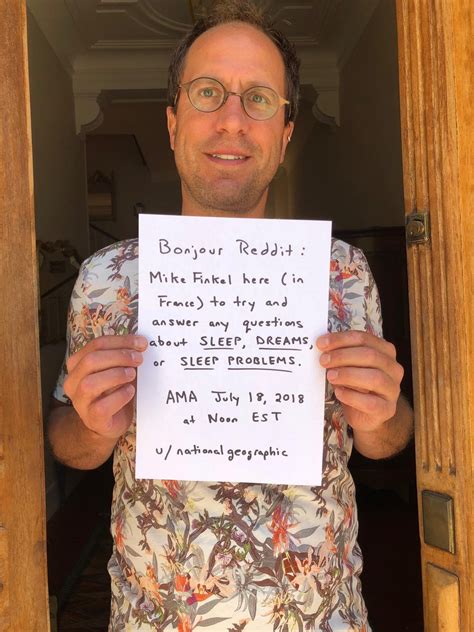A Quote by Michael Finkel
My advice for telling someone else's story is to try not to consciously bend the story in any particular direction - to listen with an open mind, to include the good with the bad, to attempt to quell one's biases and allow the person you're writing about to emerge as wholly as possible, warts and all.
Related Quotes
I think that people have to have a story. When you tell a story, most people are not good storytellers because they think it's about them. You have to make your story, whatever story it is you're telling, their story. So you have to get good at telling a story so they can identify themselves in your story.
The story is the only thing that's important. Everything else will take care of itself. It's like what bowlers say. You hear writers talk about character or theme or mood or mode or tense or person. But bowlers say, if you make the spares, the strikes will take care of themselves. If you can tell a story, everything else becomes possible. But without story, nothing is possible, because nobody wants to hear about your sensitive characters if there's nothing happening in the story. And the same is true with mood. Story is the only thing that's important.
When you are in the middle of a story it isn't a story at all, but only a confusion; a dark roaring, a blindness, a wreckage of shattered glass and splintered wood; like a house in a whirlwind, or else a boat crushed by the icebergs or swept over the rapids, and all aboard powerless to stop it. It's only afterwards that it becomes anything like a story at all. When you are telling it, to yourself or to someone else.
But my body was telling its story. I have read a lot of stuff about cancer. I needed this book. I wish I'd had this book when I had cancer. I wanted someone to be talking to me about "fart floors." I wanted somebody telling me what it was like to have a colostomy bag. I felt so alone. And if you're a person who's been traumatized by past abuse, it's so potentially re-traumatizing. You slip right into "oh my god, this is the only person this has happened to before" mentality: "I'm especially bad and I have especially bad cancer..."
My parents telling me that if there is a story you feel compelled to share, then you are responsible for doing that. You can't ask someone else to take on that story - or you can, but you have to deal with whatever the fallout is. If the story doesn't end up being told the way you originally heard it or that you feel it needs to be expressed, that's on you.































